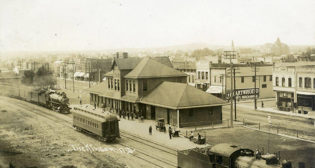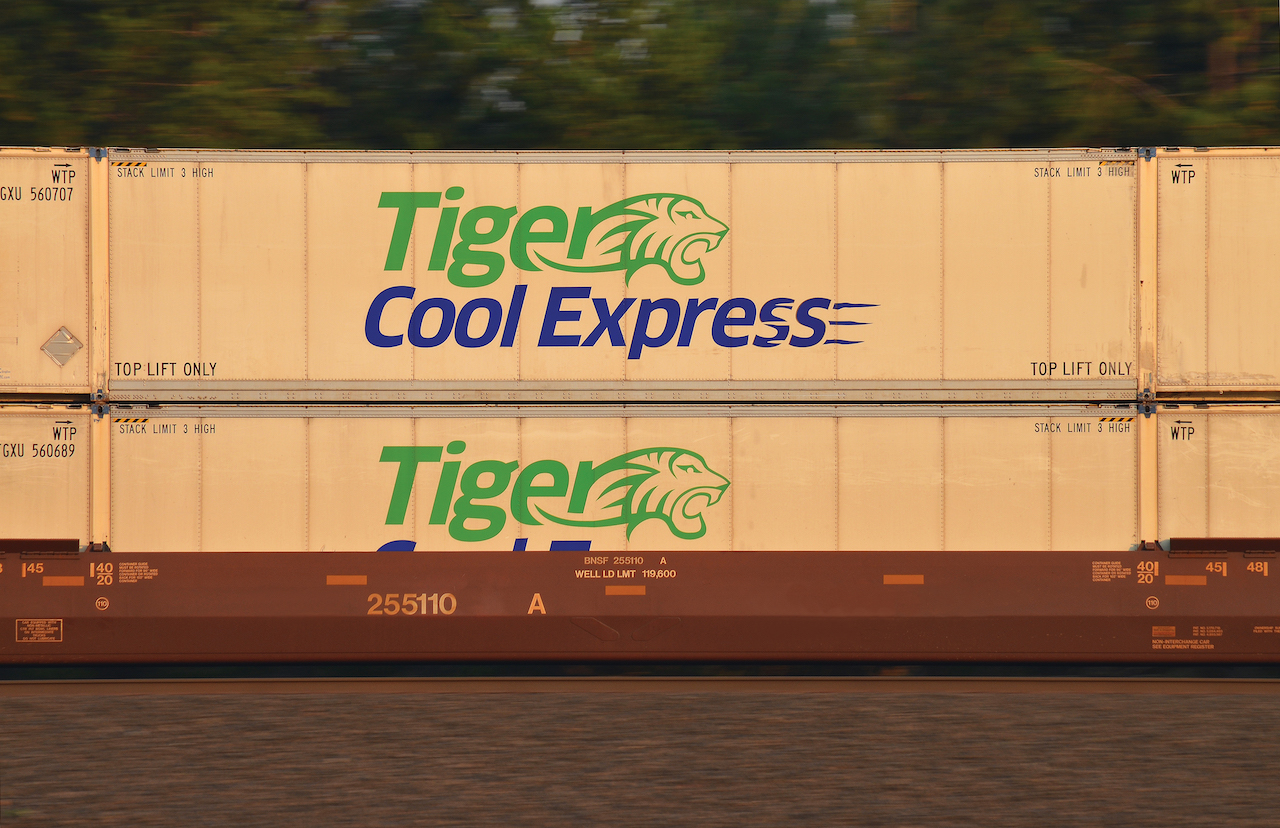
Reports: Tiger Cool Express on Ice (Updated With Commentary)
Written by Carolina Worrell, Senior Editor
Photo by Bruce Kelly
Kansas City-based Tiger Cool Express LLC has abruptly halted operations and closed its doors, effective immediately, according to a LinkedIn post from former Vice President of Sales Jared Nye, the Kansas City Business Journal reported on June 14.
Tiger Infrastructure Partners, the private equity group that owned the intermodal provider, “pulled its funding this week, forcing the company to close [June 13] and putting more than 50 people out of work,” a source with knowledge of the company’s operations who did not want to be identified told the Journal of Commerce June 14.
The carrier of refrigerated perishable products, which the Journal of Commerce called “a victim of weak demand for domestic intermodal and low trucking rates that took away market share,” had been expanding its footprint in Washington State and Oregon, and had recently announced the opening of a Tri-Cities Logistics Center in Washington State, which was the 67-acre former Union Pacific (UP) Cold Connect facility in Wallula, Wash. But with Tiger Cool Express suddenly shutting down, the Tri-Logistics Center will need to quickly find a new operator, as UP “hoped to be in operation by August,” according to the Kansas City Business Journal report.
Tiger Cool Express had nearly 700 temperature controlled intermodal containers and was a major hauler of Washington State and Oregon products on BNSF Railway, including apples, potatoes, onions, frozen French fries, frozen vegetables, wine, beer, cherries, and various beverages and juices. The sudden loss in shipping capacity out of Washington State and Oregon will leave many agricultural and food companies “scrambling to find new temperature-controlled carriers to move their products,” according to the Kansas City Business Journal report.
Representatives from Tiger Cool Express, UP and BNSF did not respond to a Railway Age request for comment.
COMMENTARY
Independent rail industry consultant Braden Kayganich provided the following observations:
“This is the second blow to the Columbia Basin to give refrigerated intermodal a larger foothold in the market. The first was Cold Train back in 2014. Both situations are the outcome of specific circumstances.
“Some of the business opportunities that may have a chance for growth: Potatoes for example have much room for capture, yet according to Washington Potato Commission President Chris Voigt, only 20% of frozen potato products move by rail. No fresh potatoes go by rail at all due to prior numerous service failures. You can bet a vast majority of the hauls are transcontinental. Yet rail is only moving 2 out of 10 frozen potato loads. Let that sink in.
“Here’s the big picture: Perishable traffic is very lucrative and is still a largely untapped segment by the Class I’s. Seasonal movement, equipment repositioning, etc., may make it difficult for reefer cars.”
“Can intermodal equipment negate that aspect?” asks Railway Age Contributing Editor Jim Blaze. “It’s hard to be optimistic when the financial community pulls its backing.”
“And yet, CPKC just announced acquisition of 1,000 refrigerated containers and a new service on its lines between San Luis Potosi, Mexico and points in the U.S.,” observes Chris Rooney, Vanness Company. “What are people missing? Is it too costly or operationally impossible for other railroads to serve perishable traffic adequately well? What if CPKC does it routinely? I recall the Nickel Plate Road managing to dominate, along with Erie, eastbound perishable traffic, notwithstanding New York Central’s parallel four-track Water Level Route to New York City and the Pennsylvania Railroad’s similar line. How? Focus and commitment.”



